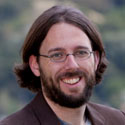Advisory Board and Editors Ecology

Owen S Wangensteen
PhD in Biology, PhD in Chemistry. Lecturer in Marine Zoology at the Dpt. of Evolutionary Biology, Ecology and Environmental Sciences, University of Barcelona
Research interests include: eukaryotic metabarcoding, marine molecular ecology, marine biodiversity, phylogeography, and bioinformatics.

Eric J Ward
I’m a statistician / quantitative ecologist at the Northwest Fisheries Science Center (NOAA) in Seattle and an affiliate professor at the School of Aquatic and Fishery Sciences (SAFS) at the University of Washington. I work on a wide range of statistical problems – population dynamics, extinction risk, conservation genetics, fisheries stock assessment, reproductive success studies, etc. Most of the species I study are fish, but I also work with data from marine mammals, seabirds, and turtles. Much of my recent modeling interests have been pursuing applications of multivariate state-space time series and spatio-temporal models, isotope mixing models, and Bayesian model selection techniques.

Darren F Ward
I am an entomologist whose research interests are focused on the threats of invasive insects, the diversity of parasitoid communities, and the utilisation of data from natural history collections in ecological research.
Jane M. Waterman
Professor of Biology at the University of Manitoba and Research Fellow of the Mammal Research Institute, Department of Zoology and Entomology at the University of Pretoria. Academic editor of PLOS ONE and former Associate Editor of the Journal of Mammalogy.

Tom Webb
Royal Society University Research Fellow in the Department of Animal & Plant Sciences, University of Sheffield, UK. Marine macroecologist, interested in applying computational methods to mobilise data and to visualise and analyse the distribution and dynamics of marine biodiversity at large spatial scales.
Andrew J Weightman
Professor of Microbiology and Division Leader (Organisms & Environment) at Cardiff University, School of Biosciences

Kenneth C Welch Jr.
Associate Professor of Comparative Vertebrate Physiology at the University of Toronto Scarborough; Associate Chair of Research and Graduate Affairs, Department of Biological Sciences, University of Toronto Scarborough; Chair-Elect of the Division of Comparative Physiology and Biochemistry of The Society for Integrative Biology.

Easton R White
I am a quantitative marine ecologist who uses mathematical and statistical tools, coupled with experiments and field observations, to answer questions in ecology, conservation science, sustainability, and ecosystem management. Most of my work is focused on marine systems, especially fisheries and spatial planning. I am a new Assistant Professor in the Department of Biological Sciences at the University of New Hampshire. Prior to joining UNH, I was a research associate at the University of Vermont with the QuEST program, a NSF-funded PhD traineeship focused on quantitative skills, interdisciplinary work, as well as diversity and inclusion.
I currently conduct research on assessing the effectiveness of protected area networks, improving species monitoring programs, and modeling socio-ecological systems in the context of fisheries. My work centers on how environmental variability, in particular rare events (e.g., hurricanes, COVID-19 pandemic), affects ecosystems and those that depend on them. My current work is funded through a NSF grant focused on interdisciplinary approaches to study coupled natural-human systems with Madagascar fisheries as a case study.

Ethan P White
Associate Professor in the Department of Wildlife Ecology and Conservation at the University of Florida. Moore Foundation Investigator in Data-Driven Discovery. National Science Foundation CAREER 'Young Investigators' Award recipient. Member of the Data Carpentry and Impactstory boards of directors.
My research focuses on data-intensive questions in ecology, using large ecological datasets, advanced statistical/machine learning methods, and theoretical modeling to understand ecological patterns.

L. LaReesa Wolfenbarger
Dr. Wolfenbarger conducts research on the ecology and conservation of grassland species and communities in the agricultural landscape of the Great Plains. She also devotes research time to synthesizing information for policymakers and resource managers so that scientific results are readily available for decision makers.

Sau Pinn Woo
Dr Woo received his PhD in Natural History Sciences from Hokkaido University. His interest of study includes systematics, taxonomy, and diversity study of marine invertebrates, focusing on the group Echinoderms. Since 2009, he has been actively uncovering the marine biodiversity and systematics of sea cucumbers across the region.
He is currently serving as a senior lecturer in the Centre for Marine and Coastal Studies (CEMACS), Universiti Sains Malaysia where he is also actively leading several marine biodiversity research in the Southeast Asian region that includes several taxa of marine invertebrate. At the global front, he is a serving in several UN Decade of Ocean Science Program ECOP co-chairs and also an active contributor to the IOC Sub-Commission for the Western Pacific (WESTPAC) programmes. At the same time, he is passionate in creating awareness and education of marine sciences to the society through various educational programmes done in CEMACS with the concept of experiential learning for marine sciences

Kerry Woods
Faculty at Bennington College since 1986, ecology and evolution. Research: forest ecology, long-term studies, paleoecology, remote sensing. Ph.D. Cornell Univ (RH Whittaker, PL Marks); post-doctoral, U. Minnesota (MB Davis), UC-Santa Barbara (DB Botkin). Bullard Fellow, Harvard 1998, Center Fellow, NCEAS 2008-9; Prog. Chair ESA 2007; Assoc. Ed. ESA journals, 2001-2011; Assoc. Ed., IAVS journals 2001-pres; Pres. N. Am. Ch. IAVS 2009-2010; Past Chair Professional Ethics Comm. ESA, IAVS.

